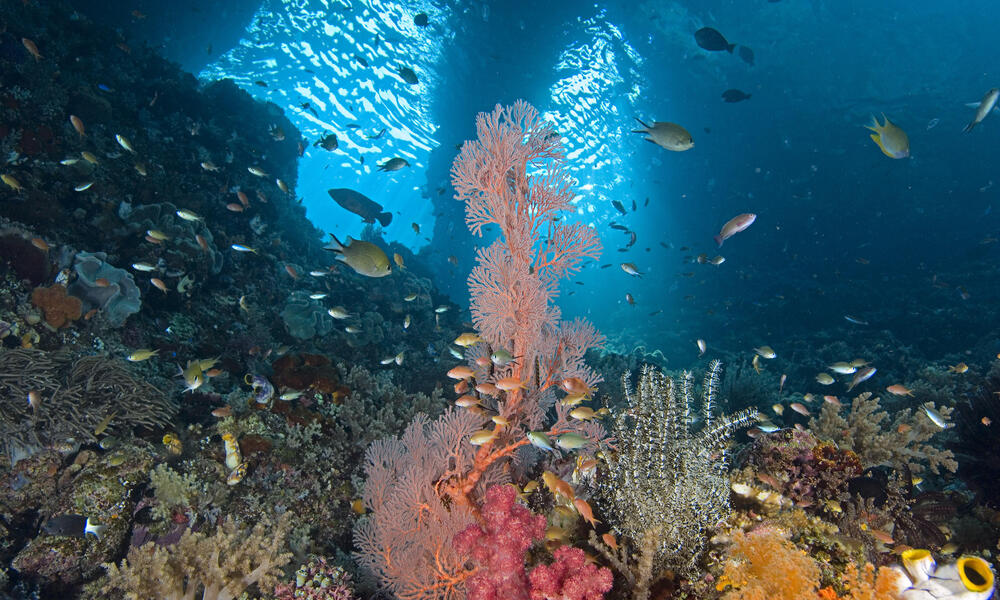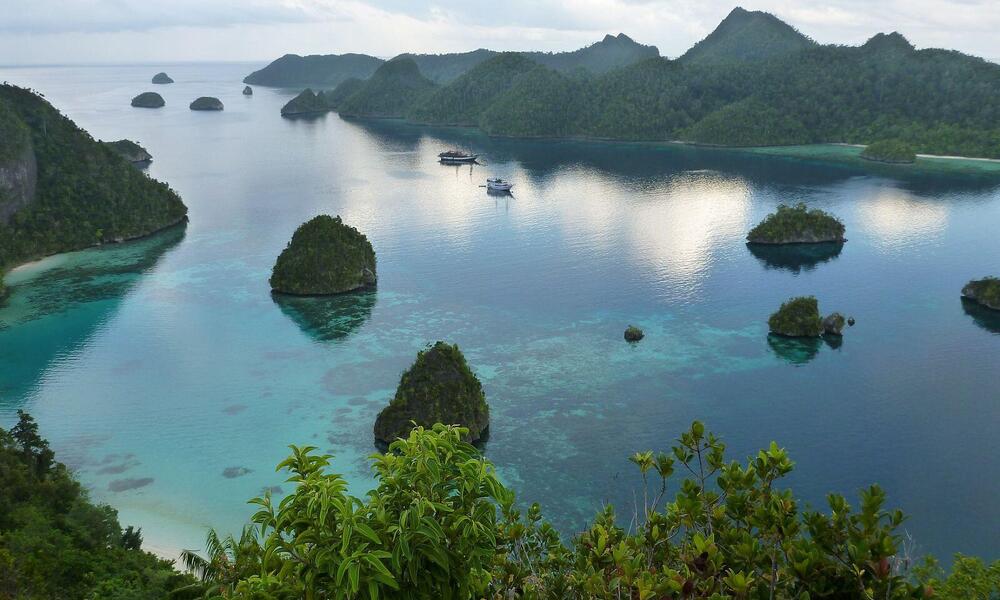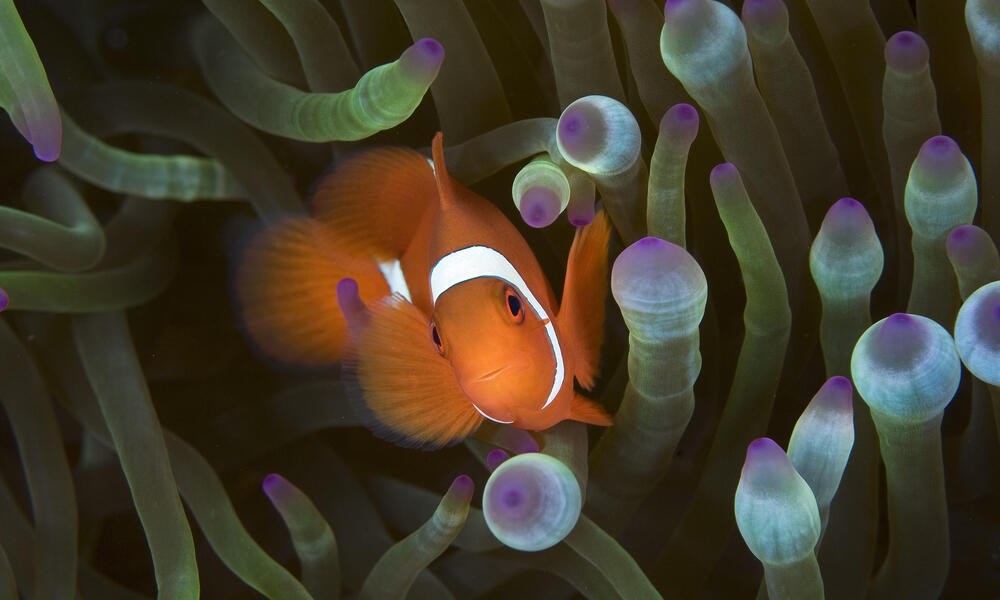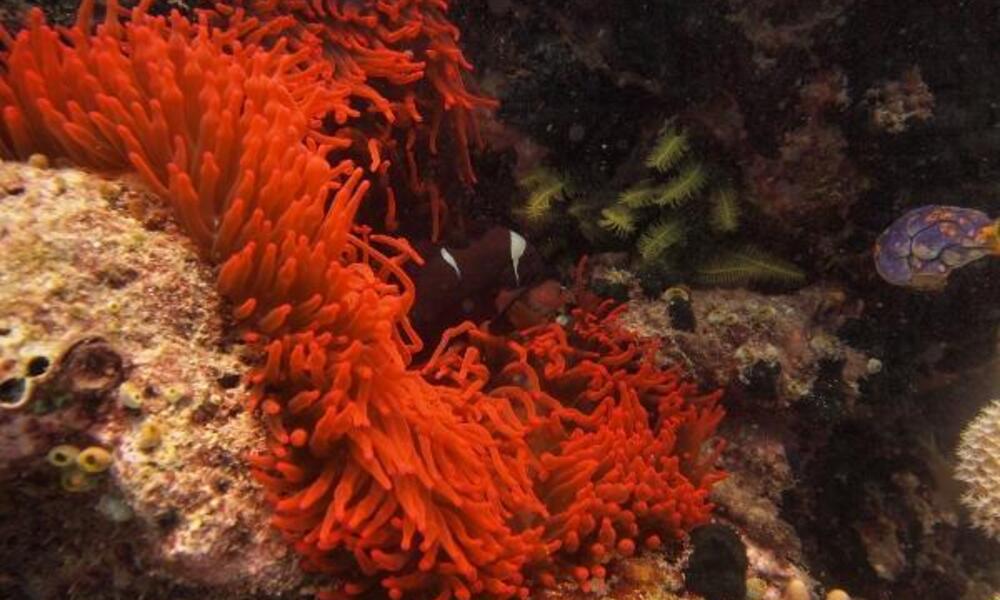Off the tip of the Bird’s Head Peninsula of West Papua, Indonesia lie the islands of Raja Ampat, a marine oasis within the Coral Triangle. The waters surrounding the islands boast incredible biodiversity: over a thousand different species of reef fish, hundreds of corals, sharks, manta rays—a “species factory” for marine life.
More than 85% of reefs within the Coral Triangle region are currently threatened by local stressors, which is substantially higher than the global average of 60%. The most widespread local threat is overfishing, including destructive fishing. Shark populations in Raja Ampat have seen dramatic decline due to finning practices.
In 2007, the local government created a network of marine protected areas (MPAs) that protects nearly 50% of Raja Ampat’s coral reefs and mangroves.
WWF Marine Conservation Biologist Helen Fox is part of a project to monitor coral reef health in Raja Ampat, in collaboration with Conservation International (CI) and The Nature Conservancy (TNC). The team will conduct dives during October 2012 to assess the current state of coral reefs in sites outside the region’s MPAs.
A lot of information on coral reefs within MPAs exists, but we lack information from outside of protected areas. Such information is needed for comparison and will enable us to understand how effective MPAs are in protecting biodiversity and contributing to fisheries management. Information from this project will also link to a larger, innovative social research project documenting the impacts of marine protected areas establishment on local communities.
WWF and government partners are working to create a network of marine protected areas (MPAs) in the Coral Triangle. We are studying the impacts of protected areas on local communities as well as the reef itself, working to ensure MPAs are designed and managed well, and monitoring the impacts of reserves to find solutions that benefit both people and nature.



